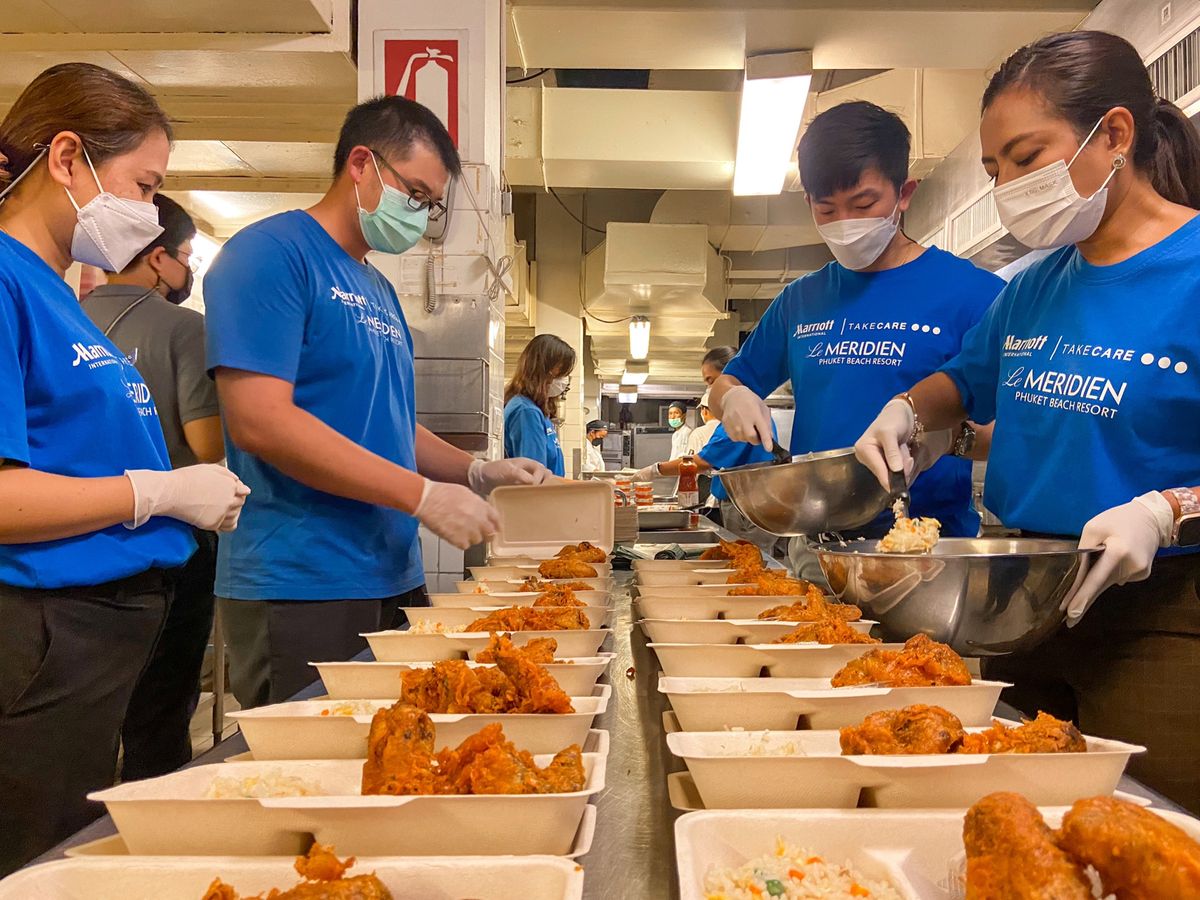How to Manage Leftovers From Your Meeting
The COVID-19 pandemic revealed how widespread food insecurity is around the world. But did you know that 30% of global food production is wasted? Meeting planners are as aware as the rest of society about food insecurity, which is why it’s so important to review the facts about donating event leftovers to a community kitchen—something that is “well within the bounds of an organization like Marriott,” says Amy Bourne, Marriott’s senior manager, sustainability and supplier diversity.
Perhaps more important is to dig into how to reduce food waste in the first place, Bourne says. But first, a look back.
The Bill Emerson Good Samaritan Food Donation Act
Many meeting planners may still be operating under the erroneous belief that legal concerns bar them from donating leftovers and surplus food from their events to a community kitchen. But, as Bourne points out, that’s just not true. The 1996 Bill Emerson Food Donation Act established federal protection in the United States from civil and criminal liability for persons involved in the donation and distribution of food and grocery products to needy individuals when certain criteria are met. Criteria include certain safety protocols like packaging and food storage temperature. Outside of the U.S., meeting planners should check with their country and state laws and local public health officials to ensure compliance with local food donation requirements.
Ending Food Waste at Every Point
According to the World Wildlife Fund, about 11% of greenhouse gas emissions could be eliminated if food waste were brought to zero. (Aviation, by comparison, accounts for 2% of global emissions.) Donating leftovers is a positive step toward that, but it’s not a perfect solution to food waste. Enter Marriott’s Serve 360 commitment to creating positive and sustainable impact wherever the company does business. One of Serve 360’s goals is to slash food waste to landfill in half by 2025.
What does this look like in practice? In addition to ensuring food waste is not generated in the first place through improved planning and purchasing decisions, there are creative ways to prevent food waste from entering landfills. Let’s say there’s sliced watermelon on a buffet. Some properties have developed tasty recipes to turn the rind into candies that can be left in guestrooms. Another fun use for food waste? Banana peels can be dehydrated into jerky, as they have been at some of Marriott’s European properties. In 2021, the JW Marriott Hotel Bangkok transformed used coffee granules into an enticing (free!) body scrub for guests, and 14.2 tons of fruit and vegetable peels from the property were donated to a local farm for animal feed.

How to Make a Donation
What if, despite your best intentions and carefully planned ordering, your meeting still has leftovers? Bourne says there are several apps that make food donation easy by picking up leftovers from meetings. Some of these include (in the United States): Chow Match, Copia, Food Finders, MealConnect, and, in the U.K., Too Good to Go.
The Future of Food Waste
“Beyond our 50% reduction goal, globally, by 2025, we are continuing our work with external partners like the World Wildlife Fund,” Bourne says. One successful program that Marriott is proud to share with its hotels is hotelkitchen.org, an online toolkit that full-service hotels and food service institutions, including restaurants, cruises, and catering companies, can use to learn more strategies for reducing food waste. The toolkit was produced via a collaboration between the World Wildlife Fund (WWF), the American Hotel & Lodging Association (AHLA), and the Rockefeller Foundation, with contributions from Marriott International.
Regardless of whether it’s donating food, repurposing scraps, or other diversion options such as composting, meeting planners have a responsibility to think not just about what guests will eat, but how those meals will impact the earth.



The following brands do not participate in Marriott Bonvoy™ Events: Design Hotels, Marriott Executive Apartments, Residence Inn, TownePlace Suites, StudioRes, Bulgari Hotels & Resorts, The St. Regis Residence Club, The Phoenician Residences, a Luxury Collection Residence Club, Scottsdale, The Ritz-Carlton Club, The Ritz-Carlton Yacht Collection, and Homes & Villas by Marriott Bonvoy. For a full list of participating and non-participating brands, please click here.